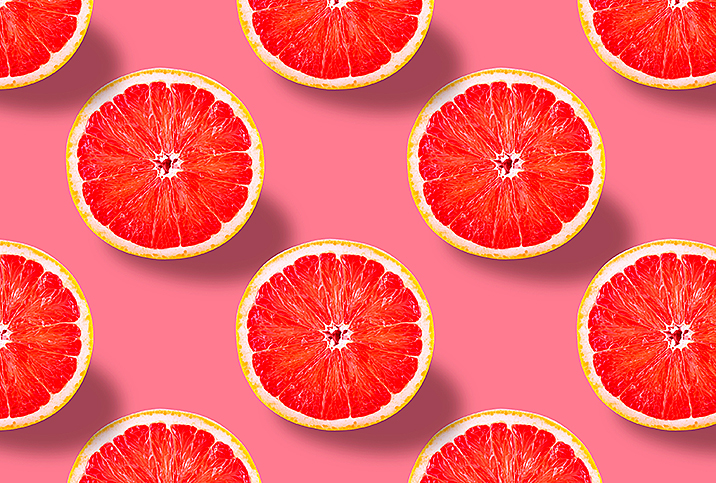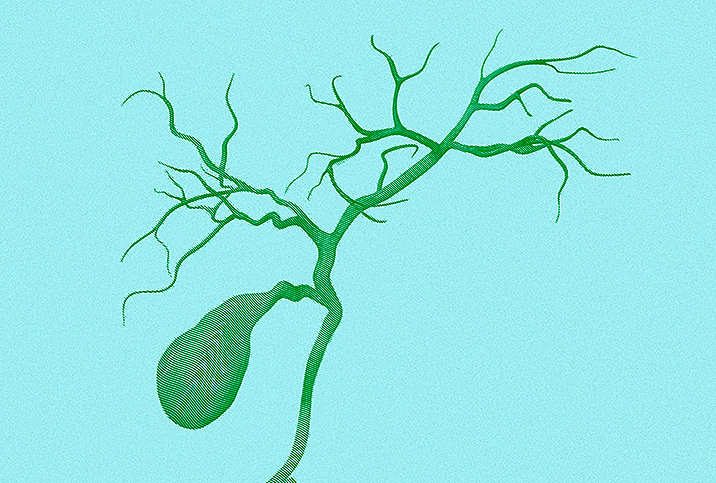Can Grapefruit Interfere With Your Birth Control?

Most people are aware of drug-drug interactions, which occur when two medications react together to create a negative side effect. These interactions are easily found online and will likely be explained to you by your doctor before you start a new medicine. Food-drug interactions, however, are sometimes lesser known and can have serious effects on the efficacy of your pills.
In the case of birth control, where a decrease in the drug's effectiveness can result in major unwanted consequences (such as pregnancy!), understanding these interactions is incredibly important.
Some foods and supplements that might interact with birth control include grapefruit, charcoal and St. John's wort. Making sense of these claims can be confusing, which is why we talked to the experts. Here's what you need to know about the most common food-drug interactions with hormonal contraceptive medications.
Grapefruit and birth control
Grapefruit is known for its health benefits. The fruit is rich in antioxidants and vitamins, and is even thought to help with weight loss.
Although healthy in many ways, grapefruit can interact negatively with medications. A 2013 study indicated more than 85 drugs have the possibility of interacting with grapefruit, with 43 resulting in serious adverse effects. According to the Food and Drug Administration (FDA), the degree and severity of the interaction will differ from person to person.
Grapefruit interacts with medications in two ways. First, it can block the enzyme CYP3A4, which helps metabolize drugs in the small intestine, resulting in higher concentrations of the medication in the body and increased side effects. Every person has different levels of CYP3A4 in their body, so grapefruit can interact differently with the same drug depending on the individual.
Grapefruit can also block the action of transporters, special molecules that transport the drug into the body's cells. This can decrease the amount of medication in the body, causing the drug to not work at all.
'[Grapefruit] might increase the chances for side effects like breast tenderness, nausea, changes in uterine bleeding, blood clots or breast cancer.'
Drugs that are taken orally and metabolized by the CYP3A4 enzyme have been found to be impacted the most by grapefruit. Birth control fills both requirements. Current research indicates grapefruit can inhibit the breakdown of estrogen in the body.
Swathi Varanasi, PharmD, a pharmacist, author and integrative health expert in Los Angeles, explained that different types of hormonal birth control will be affected differently by grapefruit. "A lot of birth control pills have EE estrogen, Ethinyl estradiol," she explained. In one clinical trial, grapefruit was found to slow the breakdown of this type of estrogen in the body.
Varanasi noted other citrus fruits can have similar effects on medications. "While eating a grapefruit occasionally here or there shouldn't cause any issues, eating a lot could increase the amount of estrogen in the body and increase the determinantal side effects," she said.
Badder Hina Afnan, R.D., a clinical dietitian at Dow University of Health Sciences in Pakistan, confirmed that women on the pill may experience worse side effects if consuming grapefruit.
"It might increase the chances for side effects like breast tenderness, nausea, changes in uterine bleeding, blood clots or breast cancer," Afnan explained. "And I would recommend patients…avoid grapefruit while taking this medicine and [eat] another fruit if they need."
Charcoal and birth control
Charcoal has become a trendy detox health food in the last few years. (You can find the substance in toothpaste, pills, drops and more.) Afnan, however, said activated charcoal might reduce birth control's effectiveness.
Activated charcoal has traditionally been used for people who were poisoned. According to Varanasi, activated charcoal has a strong ability to bind to anything. While this is a useful property when expelling toxic substances, this can render some medications useless.
In the case of birth control, activated charcoal may make the pills ineffective. While activated charcoal can be found in a variety of products, the concern is taking activated charcoal as a supplement.
"In toothpastes and mouthwashes, 9 times out of 10 you aren't getting a lot of activated charcoal in the system," Varanasi said. "My biggest worry is getting activated charcoal in the GI tract. It can have a really strong impact in the short term."
St. John's wort and birth control
St. John's wort is an herb that has been used for hundreds of years in herbal medicine. The plant is often used to treat depression and even menopausal hot flashes. "St. John's wort is awesome for depression and anxiety, but it's notorious for having a lot of drug interactions," Varanasi said.
St. John's wort has been found to have influence on the CPY460 enzyme, which affects how hormones are broken down. "St. John's Wort makes the breakdown of estrogen quicker in the body," Varanasi said, "This makes birth control less effective and can lead to unwanted pregnancy or irregular bleeding."
Talk to your healthcare provider
Aside from food-drug interactions, Afnan also stressed the importance of diet for women who are on the pill. "Women on oral contraceptives should eat a well-balanced variety of foods that are good sources of vitamins and minerals," she recommended.
With 14 percent of women ages 14 to 49 on the birth control pill, it's crucial women are educated on how the medication works in the body and what kinds of food or drug interactions can occur. That education starts by talking to your healthcare provider.
Afnan said it's important to talk to your doctor about the possible drug-drug and food-drug interactions with the specific hormonal birth control medication you take. "I must say it's better to discuss with your doctor regarding medication to avoid any complication in [the] future."

















